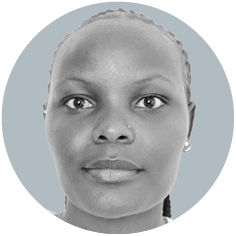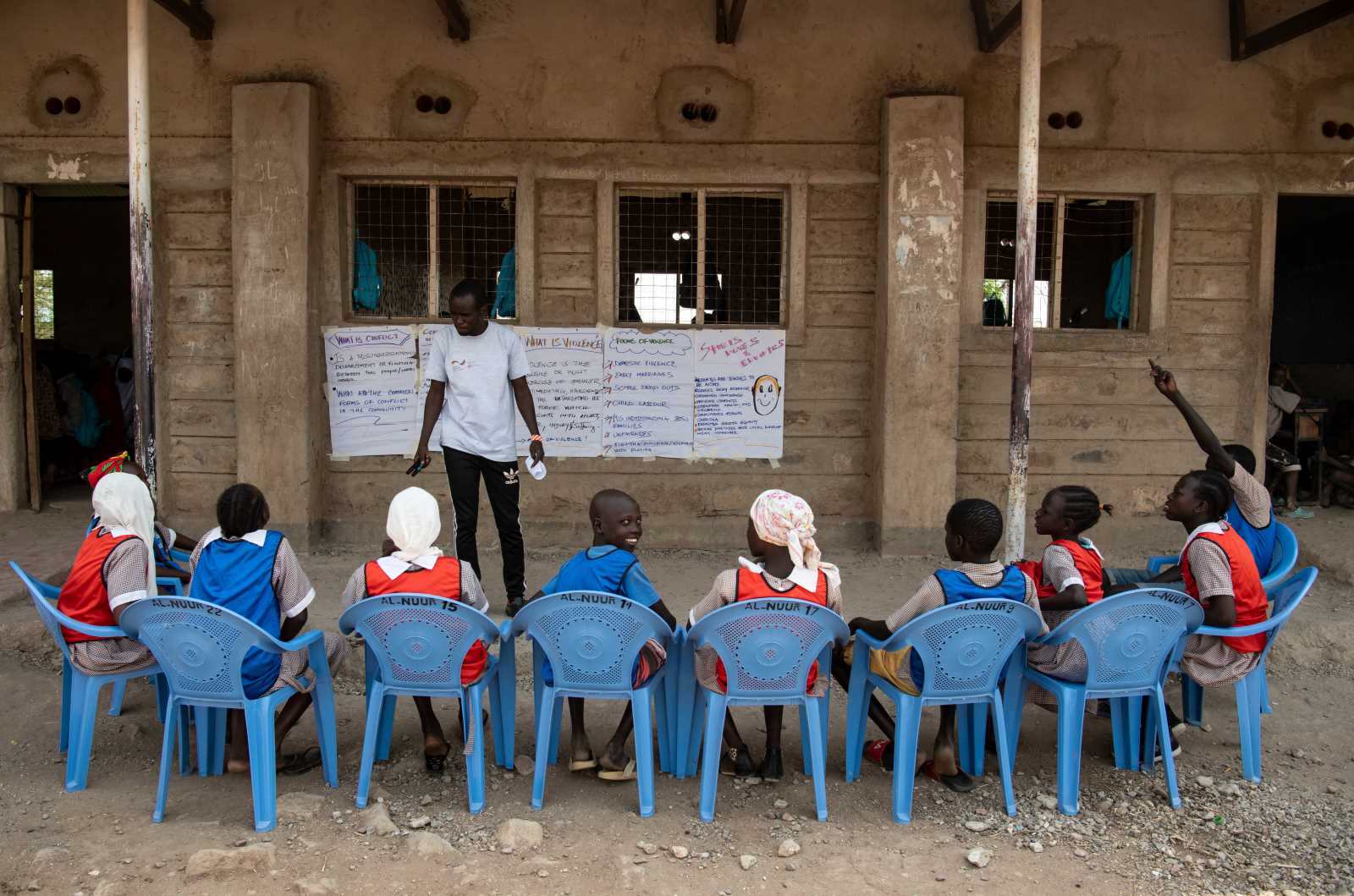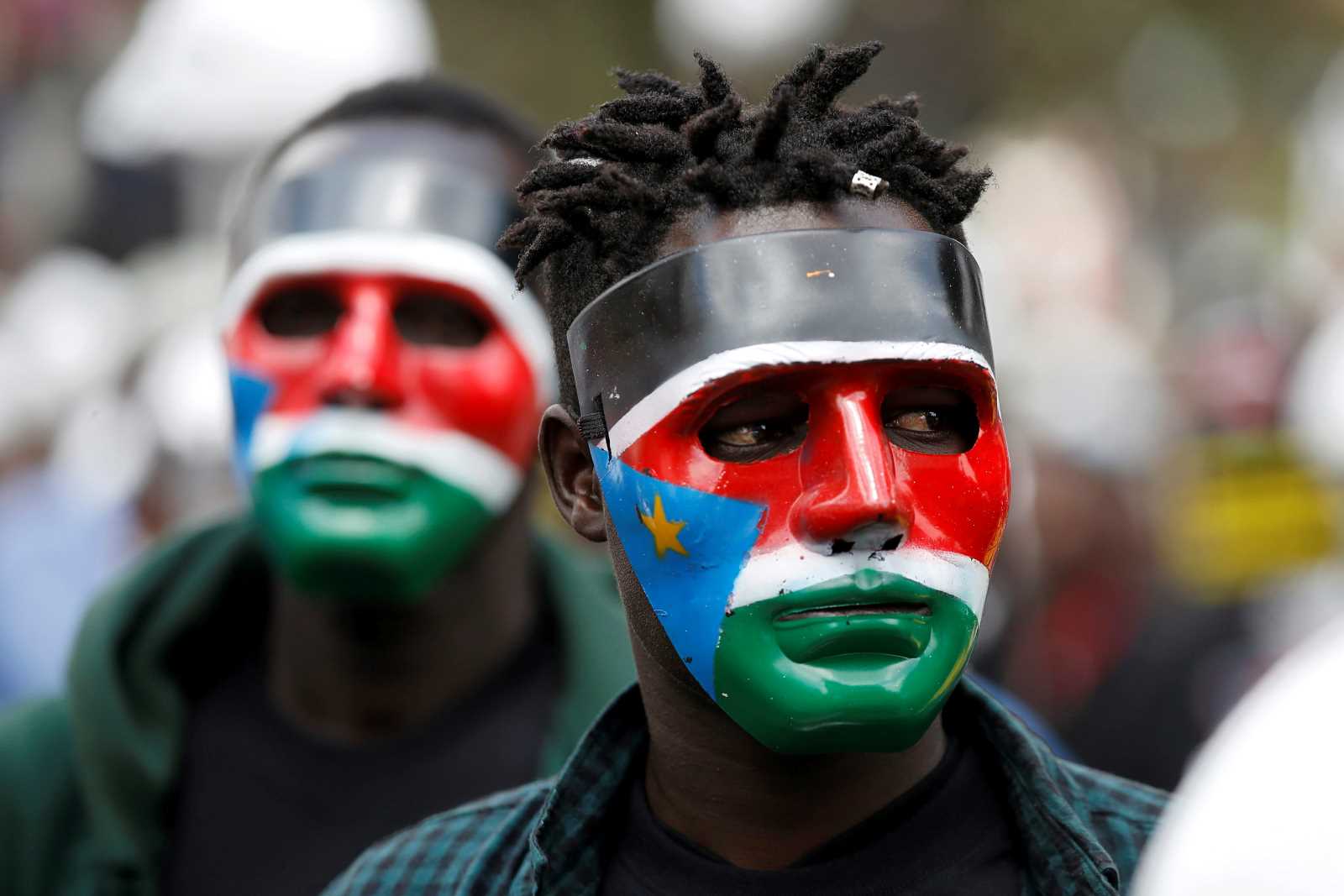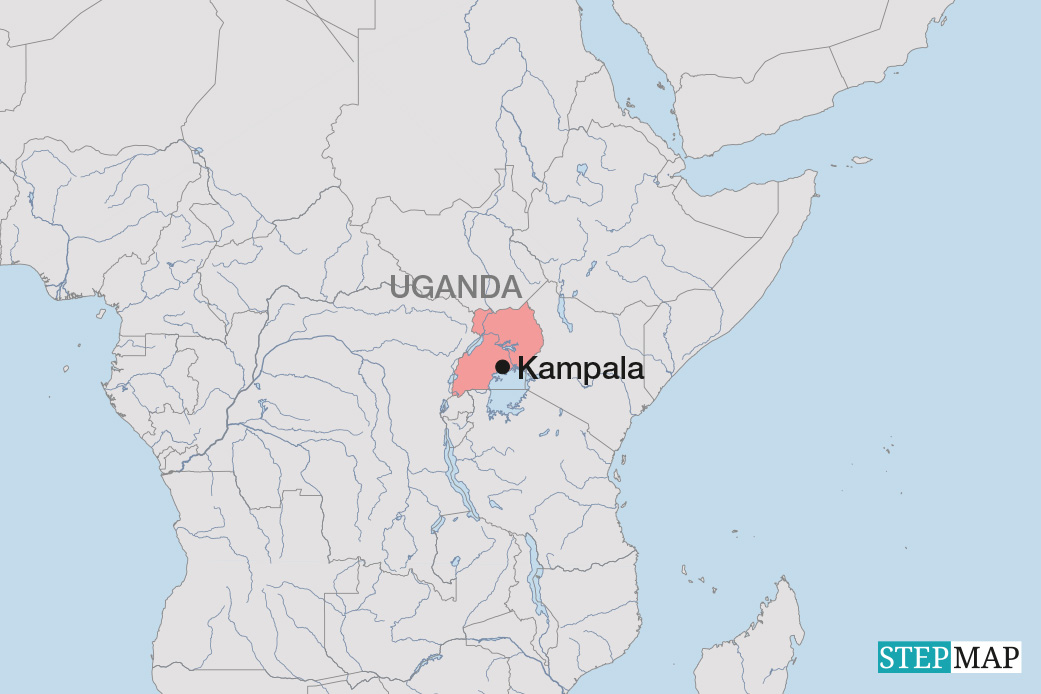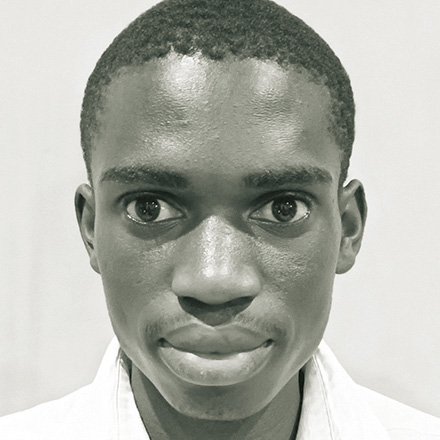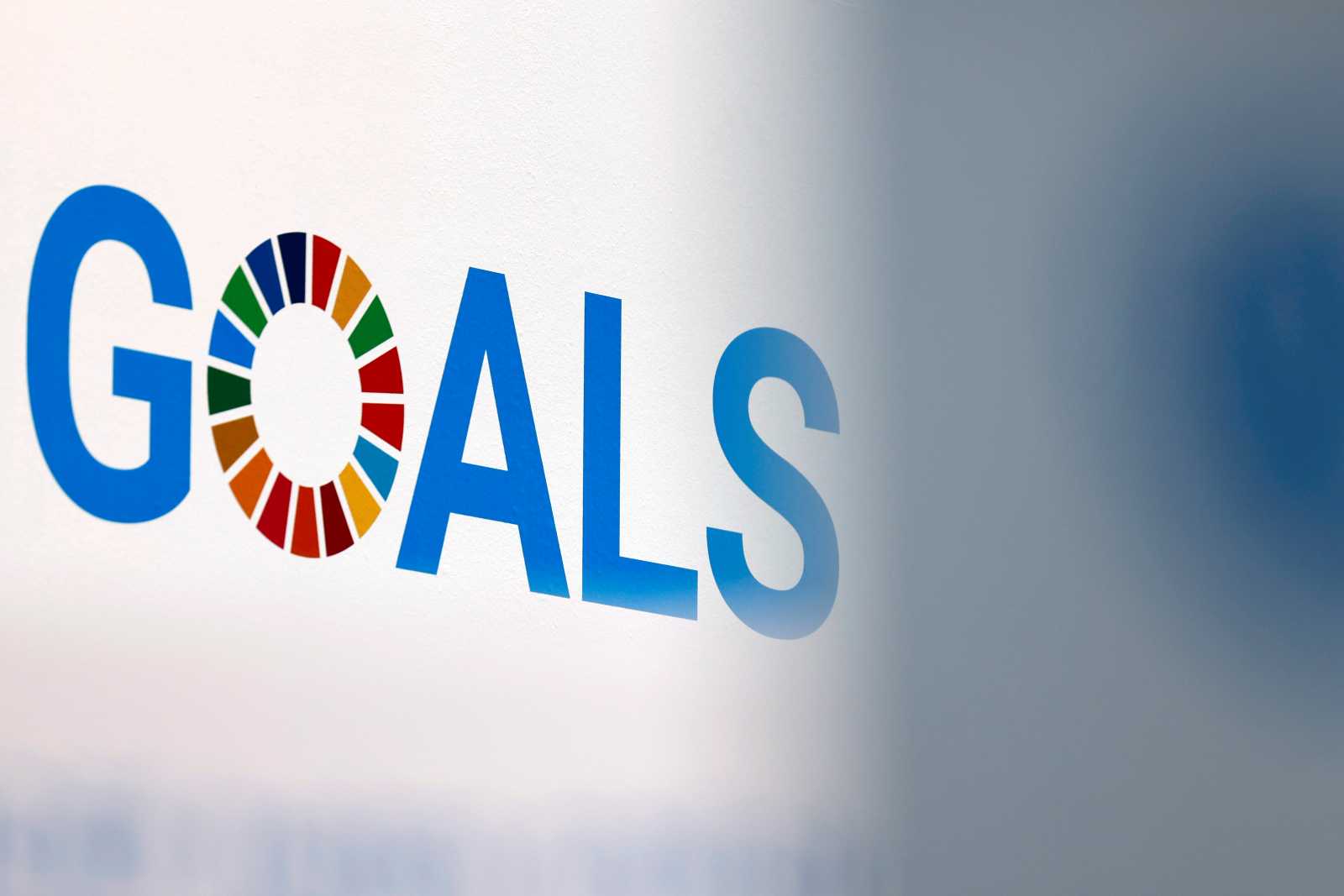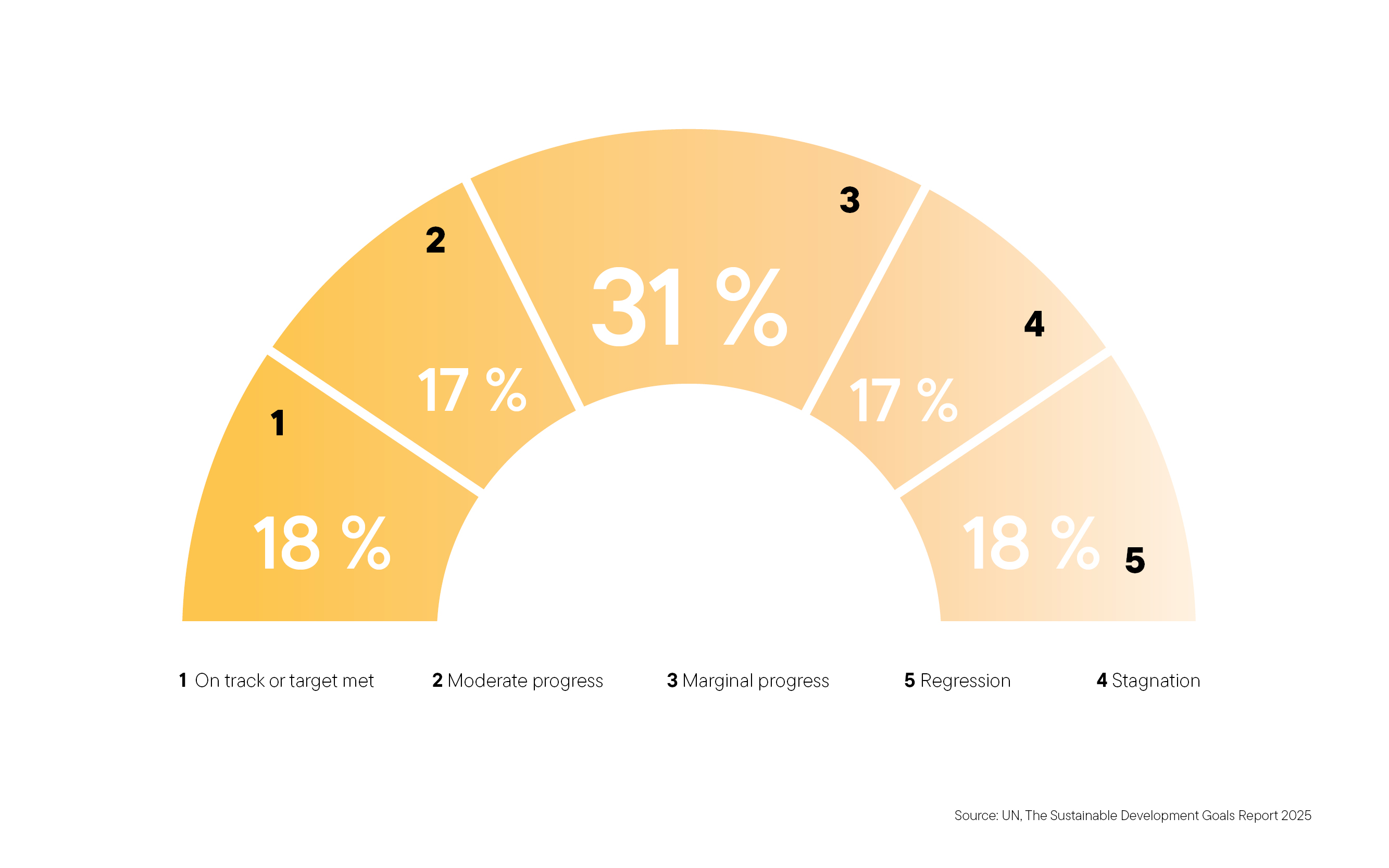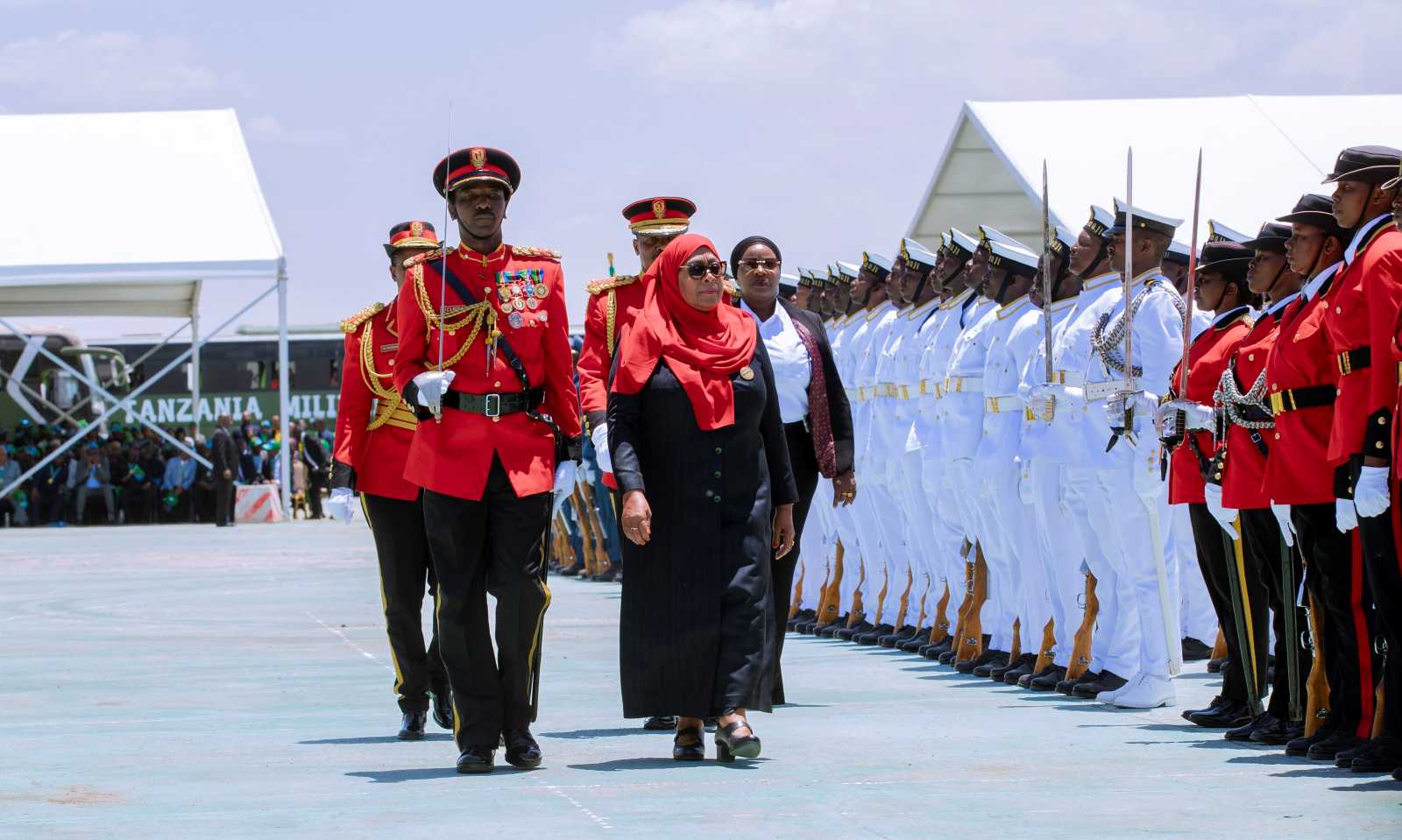Informal sector
“Most of us feel that teaching is our calling”
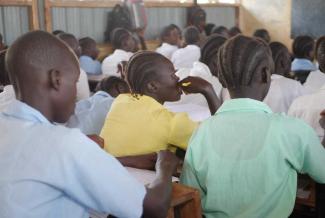
This article is part of an interview series about people working in the informal sector in different countries, including a motorcycle taxi driver in Uganda, a domestic worker in India, a fish butcher in Mexico, a street vendor in Kenya and a head porter in Ghana.
Who are you?
My name is Julia Marko, I am a teacher by profession. I completed a Bachelor of Education in English and Literature at Kenyatta University.
Where do you live?
I grew up in Kakuma refugee camp. After my studies in Nairobi, I was unable to find formal employment as a teacher. It is not easy for refugees like me to get a job in Kenya. So, I returned to Kakuma and now teach at Blue Light Prince Academy, a donor-funded school in Kalobeyei, a refugee settlement close to Kakuma camp.
How does your average day look like?
My day usually starts at five in the morning, but sometimes even earlier, and I quickly do the housework before going to work. At seven I pick up my teaching materials and take a motorbike to school, as it is not far from where I live. Classes usually start at eight, so I use the remaining minutes to plan my day. Then I check attendance. Some children are very difficult or have problems at home, and there are days when they cannot attend class or come irregularly.
Officially, the classes end at three o’clock. Even when the bell rings, my work is not done. In the afternoons, I correct assignments, plan lessons and advise children who are struggling with traumas and difficulties at home. Officially, my day at school ends at five o’clock.
The number of students usually ranges from 45 to 60, depending on which classes I am assigned to during the school year. The classrooms are tiny, but we make the best possible use of them.
What do you like about your situation?
I enjoy teaching at the camp because I know how much education can change lives. I grew up here and saw how learning changed people’s lives. This inspired me to use education as a tool for change. The camp is multinational, so I can interact with learners from different backgrounds and cultures, and we can learn from each other.
Although I enjoy my teaching work, the challenges are obvious. Most of us refugee teachers are paid as volunteers and usually receive $ 60 to $ 70 per month in addition to the aid we receive as refugees. Despite the low pay, we have to take care of many students and respond to their different needs. For example, most older learners have no educational background, not to mention the language barrier. As teachers, we have to pay close attention to each student, as not all of them understand the lesson content.
Another challenge is that teachers from the camp do not receive proper recognition from the TSC, even though some of them, like me, have studied at universities and colleges. Without the support of the TSC, we do not receive the same privileges as Kenyan teachers, such as better pay, healthcare and housing allowance.
How can your situation be improved?
I believe that the recognition of refugee teachers requires cooperation between the United Nations and the Kenyan government, by incorporating them into the national education system and creating policy frameworks that support the development of the teaching profession in the camp. Most of us feel that teaching is our calling, and, despite the challenges, we will always return to it. However, if the two parties could find a solution, it would also be a catalyst for many refugees who are interested in becoming teachers.
Alba Nakuwa is a freelance journalist from South Sudan based in Nairobi.
albanakwa@gmail.com
